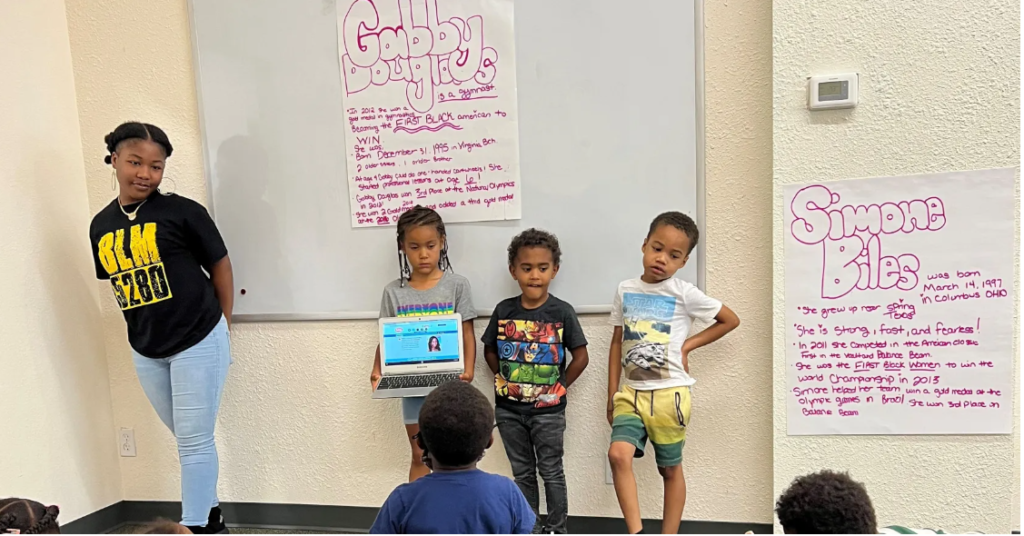On Nov.10 Colorado became one of just six states to include specific references in its new social studies standards to the history, culture, and social contributions of American Indians, Latinos, African Americans, and Asian Americans, Native Hawaiian/Pacific Islanders, and the Lesbian, Gay, Bisexual and Transgender individuals within those minority groups.
Surprisingly, in what has become a political Blue State, it almost didn’t happen.
With Democrats, like myself, in the majority, the state Board of Education voted 4-3 for the more inclusive standards. By that slim margin we barely avoided the opposite of inclusiveness, something called the American Birthright standards used in states like Texas and Alabama that Republican board members advocated for. One example of the Republican perspective was board member Steve Durham pushing for the standards to connect the Holocaust and other genocides to socialism. He even managed to delete the word Nazi from an early version of the standards replacing it with that party’s full name, the National Socialist German Workers Party.
(Editor’s note: For more on ed. board vote, the state standards, state ed. board members and American Birthright see links at the end of this article.)
He relented on the use of Nazi after opposition from Jewish leaders on the condition the party’s full name remained with the word socialist. The Nazi Party was not socialist. It was fascist, a far-right, ultra-nationalist and totalitarian movement that promotes racism and anti-Semitism. It led the Nazis to commit the genocide known as the Holocaust in which more than six million Jews were systematically murdered in World War II.
Only took me and other Democrats on the board nearly half a year of work with more than two dozen individuals and education groups to gather the research and support necessary to maintain the integrity of Colorado’s social studies standards.
American Birthright is promoted by the Civics Alliance of the National Association of Scholars that’s been described by objective sources as an American non-profit politically right-wing advocacy organization, with a particular interest in education. It opposes a perceived political correctness on college campuses and supports a return to mid-20th-century curricular and scholarship norms, and an increase in conservative representation in faculty.
Truthout, a liberal nonprofit news organization, contends that American Birthright is just one of numerous recent right-wing efforts to overhaul public K-12 curricula to align with the dictates of current conservative ideology.
The National Council for the Social Studies reviewed the American Birthright standards and concluded that the standards were, “…an attempt to return to a time when United States social studies classrooms presented a single narrative of U.S. and Western history that glorified selected aspects of history while minimizing the experiences, contributions, and perspectives of Indigenous peoples, people of color, women, the LGBTQIA+ community, the working class, and countless others.”
So, while I am thrilled with the final standards, getting a successful vote was anything but easy. And it foreshadows the need for vigilance about how local school boards interpret the standards and craft their curriculums with them.
Social studies standards received demanding review.
Over the past three years, changes to the state social studies standards were included in several pieces of legislation including House Bill 19-1192. The bill required the inclusion of the individual groups noted above. The bill also established a committee that would provide specific recommendations to the state board on revisions to the standards.
The 1192 committee met far more times than required, and its recommendations then went to the Standards Revision Committee at Colorado Department of Education. This new committee was made up of social studies teachers from around the state. In November 2021, teachers on the committee presented a version of social studies standards that incorporated most of the 1192 committee recommendations including referencing all groups noted in the bill as early as preschool. The negative reaction of the conservative members of the state board led CDE to request the teachers to revise the standards one more time. And they did.
Standards vs. Curriculum, What’s the Difference?
Standards are broad learning goals articulating what students should know, understand, and be able to do over a given time.
A curriculum is an organized plan of instruction, comprised of a sequence of instructional units, that engages students in mastering the standards. Resources such as instructional materials and textbooks support curriculum. Source: Colorado Department of Education.
In June of 2022, the committee presented to the state board final recommended standards that were much watered-down from the earlier version. Most references to the groups listed in the legislation were removed.
I knew I could not support that version. Fortunately, by that stage, changes had to be made by education board members.
Democrats get to work.
So, fellow Democratic member, Dr. Karla Esser and I, went to work on proposing changes to “bring back the cuts.” Dr. Esser focused on secondary standards while I dove into the elementary version. I spent five months working with more than 30 groups and individuals with expertise in social studies taught in the early grades. And at our subsequent monthly board meetings, people who wanted to restore the cuts packed the room.
At our Nov. 10 meeting, the procedure was straight forward. Each board member would present their suggested revisions, and other board members could question, comment or challenge the revisions one at a time, or as a whole. The meeting room was again full of students, parents and educators that voiced strong support of a full, inclusive set of standards.
Part of my strategy for the meeting was to be clearly prepared and let others know it. I brought a large stack of documents and spread them all around me on the board dais. They contained lengthy comments and rationale for each individual change I had submitted, along with sample lesson plans. I had copies of the law relating to the teaching of sex education, as well as letters from students who wanted to see themselves reflected in the standards. In the end, my Democratic colleagues supported all the changes that Dr. Esser and I proposed.
Now the work moves to the local level. Watch your school boards.
Although relieved by the final vote, my colleagues and I know the battle for inclusive and honest social studies standards in Colorado is not over. All Colorado districts are required to adopt local standards that meet or exceed the revised Colorado Academic Standards. Given the current anti-inclusive movement in some districts, we can expect to see some of what played out at the state level revived at the local level. Everyone who cares about honest and inclusive social studies standards in Colorado needs to monitor and advocate education policy at their local level.
Ed board vote: https://co.chalkbeat.org/2022/10/12/23401894/social-studies-standards-civics-education-colorado-american-birthright
Colorado Standards:https://www.cde.state.co.us/standardsandinstruction/2022socialstudiesstandards
Ed Board: https://www.cde.state.co.us/cdeboard
American Birthright: https://civicsalliance.org/american-birthright/




